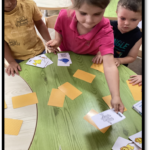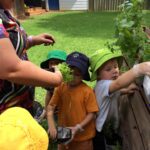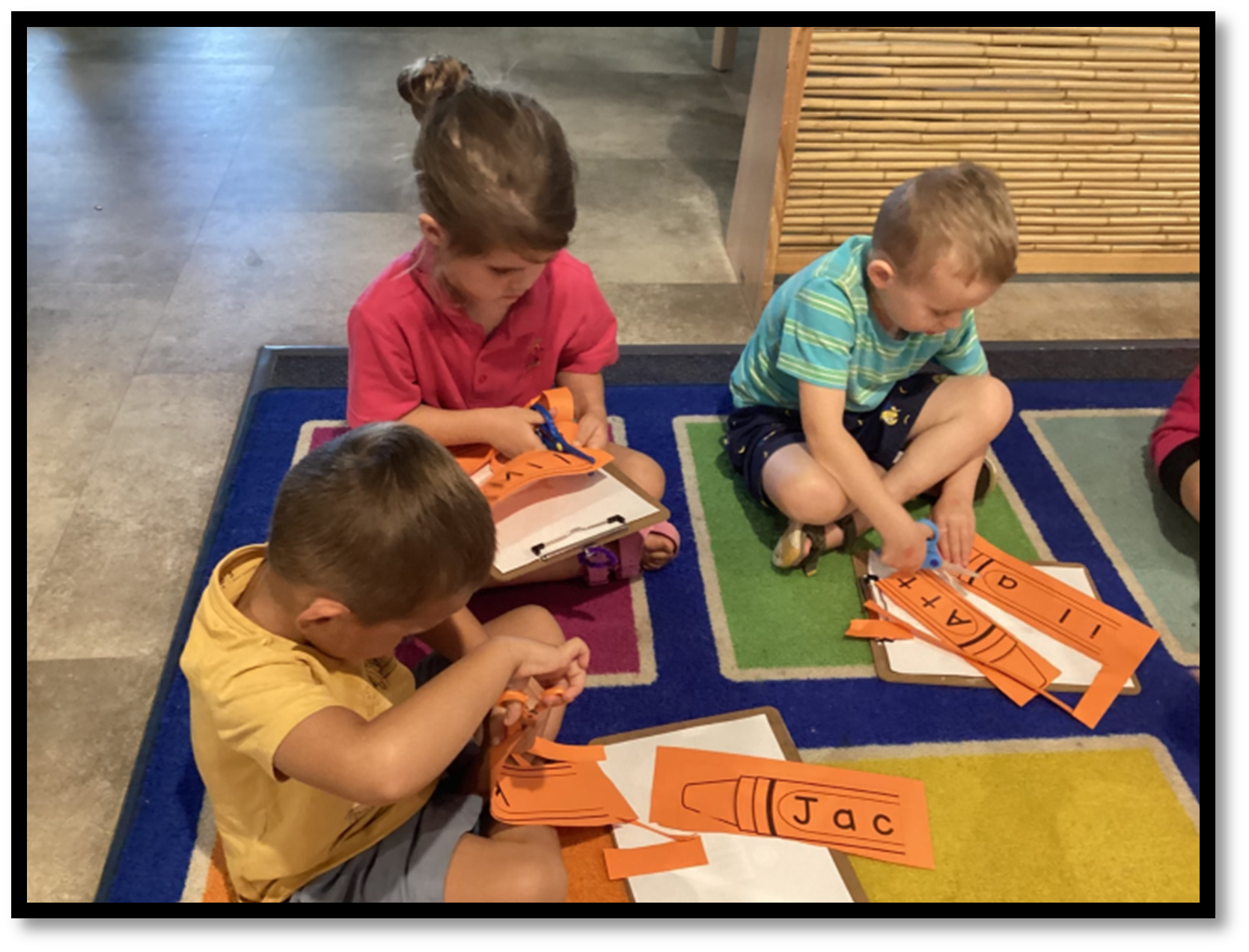School Readiness Program
What is learning through play? It is how a child can learn to make sense of the world around them through play-based experiences. We offer a play-based indoor/outdoor program in the mornings from 8:30-11:00am where children have the opportunity to explore areas they wish, including the playground both built (climbing fort, frame, slide and ladder, bike track, cubby house) and natural (sand play, mud kitchen, water, chickens, grassy area) as well as planned, intentional or spontaneous experiences indoors. Learning through play is embedded throughout the Early Years Learning Framework (EYLF) in which we use to guide our program and practice.
Play is a context for learning that:

- Allows for expression of personality and uniqueness
- Enhances dispositions such as curiosity and creativity
- Enables children to make connections between prior experiences and knowledge and adapt it to new
learning - Assists children to develop relationships and concepts
- Stimulates a sense of wellbeing
Spontaneous teachable moments – can be thought of as quick moments in time when children’s interests or engagement in specific subjects is at its highest, usually stemmed from a conversation or immersion in a situation that brings on intense learning or curiosity.
Intentional Teaching – The EYLF portrays that intentional teaching involves educators being deliberate, purposeful and thoughtful in their decisions and actions. Intentional Teaching is not only applied in our everyday program but our School Readiness Program also. Activities/experiences are intentionally planned to provide children with the opportunity to further develop their self-help, emotional, social, literacy and numeracy skills. Educational programs are planned weekly with the purpose of teaching children specific skills they should obtain prior to commencing Kindergarten. Some of these may include but are not limited to: being able to sit during group time, encouraging them to look after their own belongings, develop independence, correctly hold a pencil in their most dominant hand, exploring patterns through natural and processed materials, develop resilience, counting in their home languages and fine/gross motor abilities.
Jolly Phonics – this program is embedded in our daily program and practice, exposing children to different letters
of the alphabet and the sounds they make. Each sound has a song and/or action to represent the sound, which
help children remember them. Further engaging children in word building experiences, the difference between upper
and lowercase letters and getting them to form these letters extends on our literacy focus.
General goals and skills:
- Self-help skills- the ability to look after themselves and develop independence (effectively and confidently
communicate their needs e.g. – “can you please open my lunchbox?”), toileting independently, taking care of
belongings, put their own shoes/socks on. - Social skills- identifying emotions and regulate these appropriately, waiting patiently, using eye contact,
separate from parents with ease, play co-operatively with other children, take turns and understand the
needs/feelings of others.  Communication skills- initiate and sustain conversations, understand requests, use appropriate language.
Communication skills- initiate and sustain conversations, understand requests, use appropriate language.
- Fine motor and cognitive skills – recognise first name, understand reading conventions, recognise primary
colours, complete puzzles, attempt to problem solve independently, scissor use and concentration during
stories.
What we will be doing to ensure we prepare your child for Kindergarten:
- Buddying the children up – who are attending same primary schools.
- Environment walks around Gunnedah Community and even past the schools.
- Continue with school readiness experiences.
- Engage children in homework activities (for practise).
- Holding discussions about school.
- Reading stories in relation to starting Kindergarten.
- Continue encouraging children to sign in each day, with a goal to write their name freehand.
- Communicate with the local primary schools, giving them a half yearly and end of year update on the
children attending their schools. - Attend information sessions and transition programs with children and families.
For more information- School Readiness Brochure
